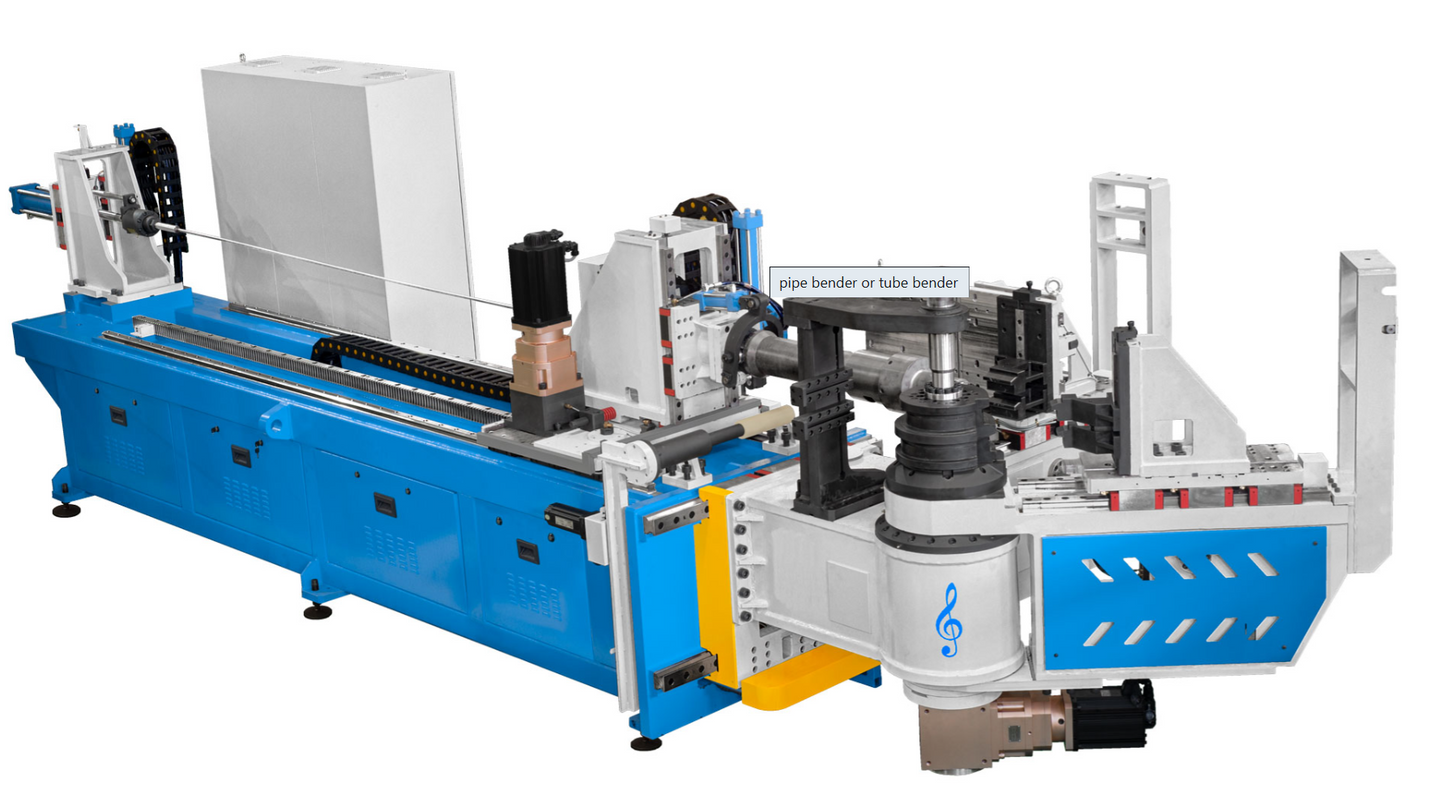Servo-driven accuracy for 2.5″ tube up to 20 ft
The Umprotech all-electric mandrel CNC tube bender for the US market is engineered for medium-diameter tube up to Ø2.5″ and extended 20 ft length. Fully servo-driven axes deliver repeatable, stackable bends with tight tolerance control—ideal for long hydraulic lines, structural tubes, chassis and frame components, and process runs where routing is complex and consistency is critical.
Mandrel support up to 3.0×D CLR
A complete mandrel package with mandrel extractor, wiper die, and pressure die assist supports centerline radii up to 3.0×D. This helps control ovality, collapse, and wall thinning on tight-radius bends in 2.5″ tube. The integrated anti-wrinkle system stabilizes thin-wall and high-strength tubing when you’re pushing near the limits of the process window along the full 20 ft envelope.
Multi-radius tooling for complex, long parts
Multi-radius tooling lets you configure several CLR stations on a single setup—ideal for very long parts that mix tight crossovers, offsets, and sweeping arcs. Auto-lubrication maintains mandrels, dies, and sliding elements for long tool life, consistent surface finish, and reduced manual maintenance in continuous production environments.
3D programming, simulation, and anti-collision
The control platform provides 3D programming with simulation so operators can verify bend sequences and clearance on long parts before cutting metal. XYZ/rotation import simplifies programming from CAD or measuring systems, while anti-collision monitoring helps protect tooling, mandrel, and machine structure when bending complex multi-plane shapes with long stick-outs and multi-radius tooling.
Automation and high-throughput options
Expand capability with an optional booster for ultra-tight radii within the 3.0×D envelope, plus auto loader/unloader systems to automate handling of 20 ft blanks. A weld seam detection option keeps seam orientation under control for safety-critical, pressure-rated, and cosmetic assemblies in 2.5″ tube.
*Actual performance varies with material grade, wall thickness, tooling design, and process setup.


